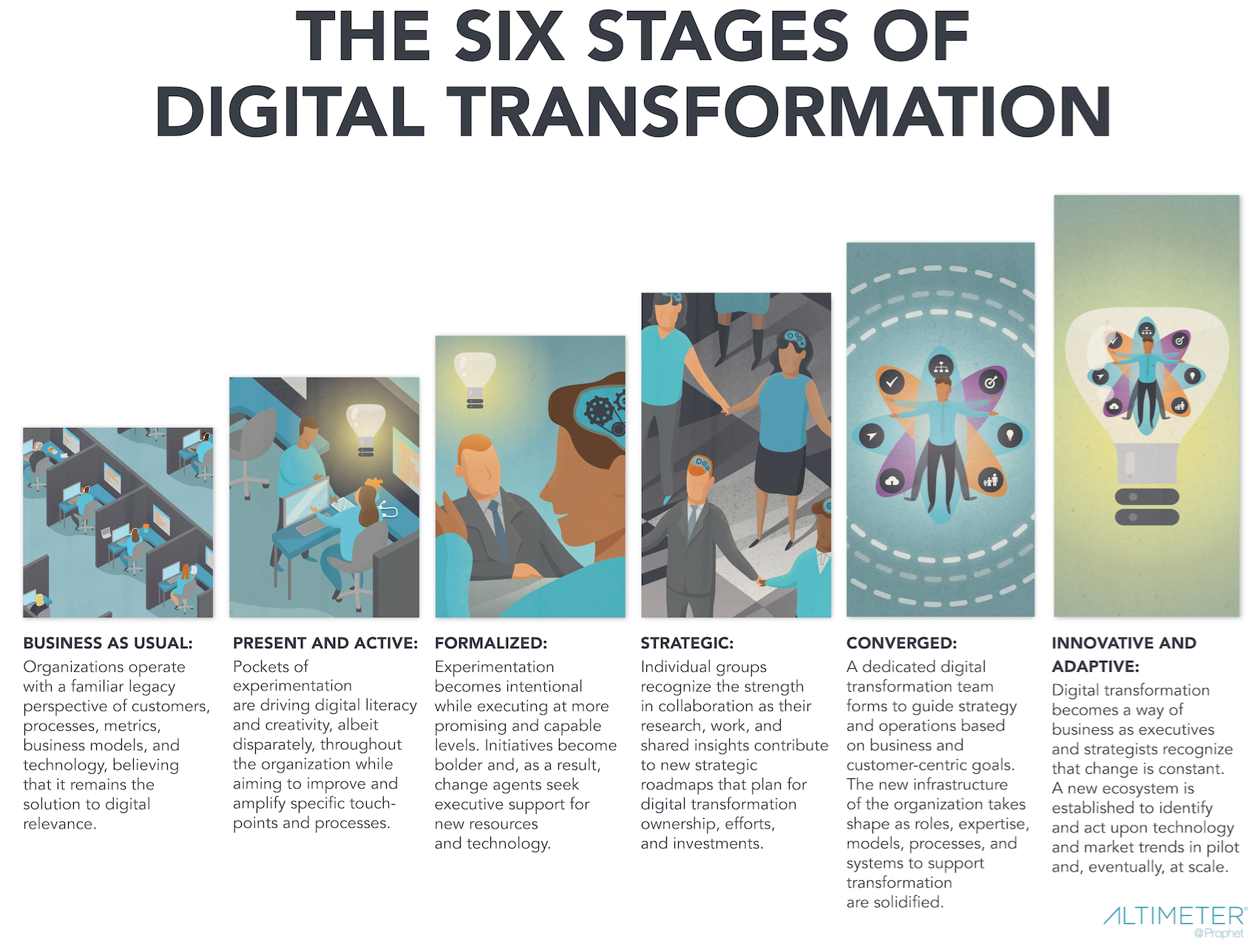The definition of digital transformation is…
2019:
Digital transformation is the evolving pursuit of innovative and agile business and operational models — fueled by evolving technologies, processes, analytics, and talent — to create new value and experiences for customers, employees, and stakeholders.
2014 – 2019:
The realignment of, or new investment in, technology, business models, and processes to drive new value for customers and employees and more effectively compete in an ever-changing digital economy.
This is how I define digital transformation, having evolved it slightly over the years. This definition, which was introduced in 2013/14, was different at the time in that it didn’t solely focus on technology. Early in its rise though the hype cycle, digital transformation was largely technology-centric with a majority of its audience consisting of CIOs, IT (information technology) professionals, vendors, integrators and consultants. While this is still the case, I noticed in my early research, that digital transformation was more than “digital.” It was also about change and change management.
One of the most interesting findings across every report was that digital transformation was part technology but also part human. In my inaugural report, I closed with the observation that while the modernization of technology systems often steals the spotlight, digital transformation is really a human story.
Why?
Not everyone in the C-Suite, the board or influential shareholders and stakeholders agree on their view of market behaviors, trends and what lies ahead. They’re disconnected from customers (and employees) by design. They manage business at scale and are measured by their ability to increase margins, efficiencies, markets, profits, shareholder return, etc. Digital transformation for many organizations is viewed as a cost center. It’s almost a bit counter-intuitive in a way. Without incurring costs to compete for the future you cannot compete for the future. This is why I believe that any investment in competing in a digital economy, to improve customer and employee engagement, and reach customers you’d otherwise miss, is just that…an investment. No risk, no reward.
The truth is that I find time and time again, those successfully leading digital transformation are seeking answers and insights to give technology and business operations a meaningful purpose. Quickly escalating to the front line along with CIOs and IT, customer experience (CX) professionals, including CMOs, are designing digital transformation strategies around evolving connected customers. Everything from touch points to journeys to processes and philosophies to front and back-end systems, digital transformation is taking shape driven by human interests. Executives often ask a simple question to get started, “what would my digital customer do and how is it complementary or different to the customers we are investing in today?”
From there, the answers lead to insights that help decision-makers see people differently and in turn, give cause and justification for doing new things that unlock new value.
My work includes insights from some of the world’s most advanced companies in digital transformation and what they are doing to successfully expedite change. I the following reports help you. They are free to download.
The 2018-2019 State of Digital Transformation
The 2017 State of Digital Transformation
The 6 Stages of Digital Transformation
2016 State of Digital Transformation
Digital Transformation Takes an O.P.P.O.S.I.T.E. approach
2014 State of Digital Transformation
Digital Transformation: Why and how companies are investing in new business models to lead digital customer experiences.
Another good resource for digital transformation is brought to you by my old friend J-P De Clerck.
Please read X, The Experience When Business Meets Design or visit my previous publications
Connect with Brian!
Twitter: @briansolis
Facebook: TheBrianSolis
LinkedIn: BrianSolis
Youtube: BrianSolisTV
Snapchat: BrianSolis
Invite him to speak at your next event or meeting.







15 COMMENTS ON THIS POST To “The Definition of Digital Transformation”